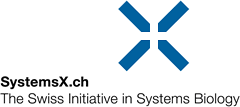A Microfluidics-Based Pipeline for the Quantitative Analysis of Yeast Aging
Aging is a common process in eukaryotes, yet its mechanisms are still poorly understood. Over the years, the budding yeast, Saccharomyces cerevisiae, has become one of the central model systems of aging research. Budding yeast cells divide asymmetrically, producing a smaller daughter cell that emerges from the surface of the mother. While most daughters are born with full lifespan potential, mothers age over time, producing only a limited number of daughters. Current research in the field focuses on the characterization of the mechanisms leading to the formation of aging factors in the mother, their molecular nature, and how they affect cellular viability, as well as the mechanisms ensuring the formation of rejuvenated daughters from aging mothers. However, aging research is currently limited by the lack of methods for monitoring large cohorts of cells throughout their lifespans, while retaining the ability to make measurements concerning their physiology and intracellular markers.
Recent efforts have resulted in the development of microfluidic devices that trap yeast mother cells and perform on-chip dissection, which allows tracking of the cell over its whole lifespan. These tools enable us to study aging on both a single-cell level and a high-throughput scale, knowing the full life history of each cell. We adapt this approach in order to analyze the segregation of potential aging factors and to investigate how they alter the phenotype and fitness of single cells. The microfluidic platform also allows a simple pedigree analysis, which is essential in studying the process of daughter cell rejuvenation.
We develop this approach further in order to establish microfluidic-based dissection as a method of choice in cellular aging research. Using fluorescently tagged protein markers, we are able to follow the changes in the structure of the organelles, the activity of signaling pathways and behavior of distinct proteins at high resolution, to shed light on the molecular mechanisms of aging.
Mot-clé: Microfluidics, aging, asymmetric cell division, rejuvenation, budding yeast
retourner
